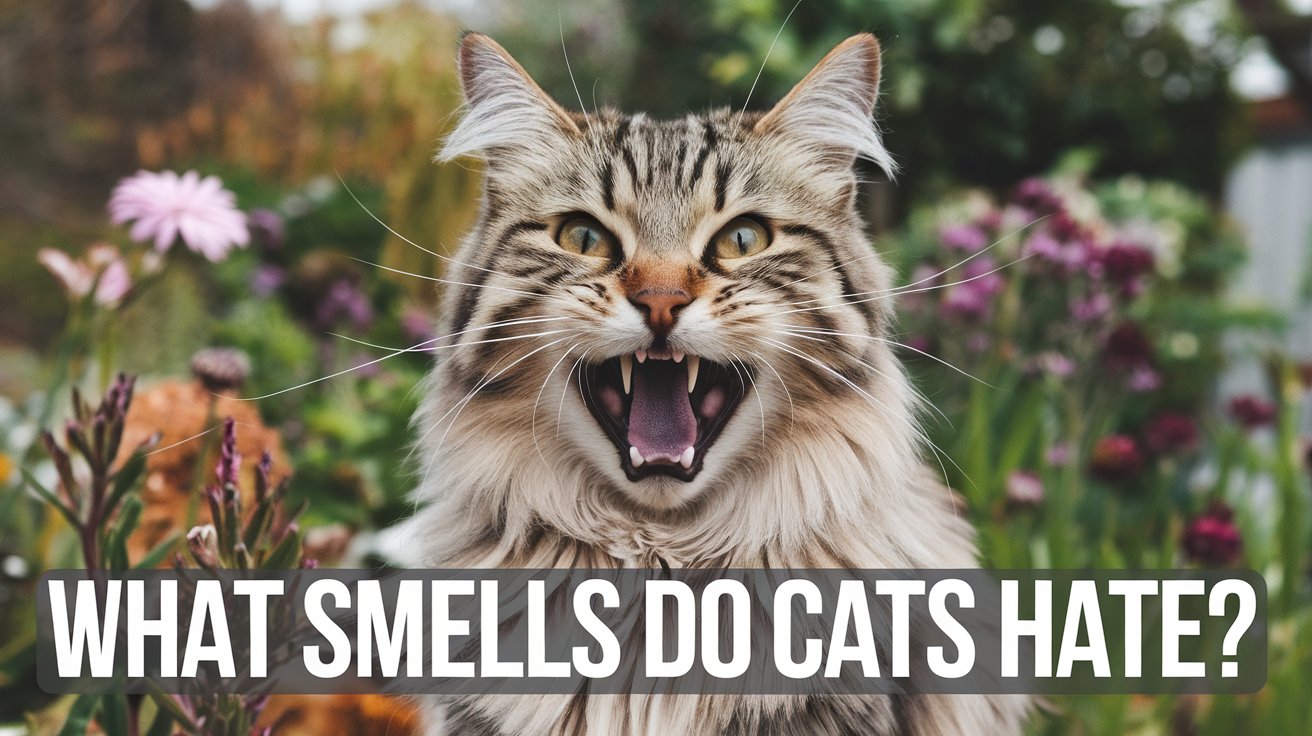
What Smells Do Cats Hate?
Cats are known for their strong sense of smell, which is much more developed than that of humans. This heightened olfactory sensitivity means that certain scents can be particularly aversive or even harmful to them. Understanding what smells cats hate is essential for cat owners who want to ensure a comfortable environment for their feline friends. In this article, we’ll explore the various smells that cats dislike, why they react to certain scents, and how you can use this knowledge in practical ways to manage your cat’s behavior.
Understanding Cat’s Sense of Smell
How Cats Perceive Smells
Cats have an extraordinary sense of smell, with approximately 200 million scent receptors in their noses—far more than the 5 million that humans possess. This ability allows them to detect even the faintest of scents, which is crucial for their survival in the wild. Their acute sense of smell plays a vital role in their daily activities, from hunting to recognizing other animals.
Role of the Vomeronasal Organ
In addition to their nose, cats have a specialized organ called the vomeronasal organ, or Jacobson’s organ, located on the roof of their mouth. This organ detects pheromones, which are chemical signals that communicate information about other animals. The vomeronasal organ helps cats interpret their environment in ways that go beyond simple scent detection.
Common Smells Cats Dislike
Citrus Scents
Citrus scents like lemon, orange, and grapefruit are some of the most commonly disliked smells by cats. The strong, acidic aroma of citrus fruits is overwhelming for their sensitive noses, and they often associate it with danger.
Vinegar
The pungent smell of vinegar is another scent that cats tend to avoid. Although vinegar is often used as a natural cleaning agent, its sharp odor can be quite off-putting to felines.
Essential Oils
Many essential oils, including eucalyptus, lavender, and peppermint, are disliked by cats. These oils are not only unpleasant for cats to smell but can also be toxic if ingested or absorbed through their skin.
Strong Spices
Spices such as cayenne pepper, chili powder, and curry have strong odors that can irritate a cat’s sensitive nose. Cats tend to steer clear of areas where these spices are present.
Cleaning Products
The chemical smell of household cleaning products, especially those containing ammonia or bleach, is highly aversive to cats. These smells can mimic the scent of urine, which cats naturally find repellent.
Alcohol
The strong odor of alcohol is another scent that cats dislike. Whether it’s the smell of rubbing alcohol or alcoholic beverages, cats will typically avoid it.

Why Cats Hate Certain Smells
Instinctive Reactions
Many of the smells that cats dislike are associated with instinctive reactions. For example, the smell of citrus may be linked to the natural aversion to bitter or sour tastes, which could indicate something is poisonous.
Association with Negative Experiences
Cats may also develop aversions to certain smells based on past negative experiences. For example, if a cat is sprayed with a citrus-scented deterrent, they may associate that smell with discomfort and avoid it in the future.
Smells That Can Be Harmful to Cats
Toxic Substances
Some smells are not just unpleasant for cats but can be harmful or toxic. Essential oils, particularly those derived from citrus fruits, tea trees, and pennyroyal, can cause severe health issues if ingested or absorbed.
Potential Health Risks
Exposure to harmful scents can lead to respiratory issues, skin irritation, and even organ failure in severe cases. Cat owners must be aware of the smells in their homes and ensure that their environment is safe.
Using Unpleasant Smells as Deterrents
Safe and Effective Methods
While it’s possible to use certain smells to deter cats from unwanted behaviors, it’s essential to do so safely. Citrus peels or diluted vinegar can be placed in areas where you don’t want your cat to go, but care should be taken not to overdo it.
Areas to Avoid Using Strong Scents
It’s important to avoid using strong-smelling deterrents in areas where your cat eats, sleeps, or spends a lot of time. Overexposure to these smells can cause unnecessary stress or even harm.

Misconceptions About Cat’s Smell Preferences
Common Myths
There are several myths about what smells cats hate, such as the idea that all cats dislike the smell of garlic or onions. While these foods are toxic to cats, their smell doesn’t universally repel them.
Scientific Clarifications
Scientific studies have shown that individual cats may have different reactions to certain smells, and what one cat finds repellent, another may not mind. It’s essential to observe your cat’s behavior to understand their specific preferences.
Expert Insights
Veterinarian Perspectives
Veterinarians often warn against using essential oils and strong-smelling products around cats due to the risk of toxicity. They recommend sticking to natural, cat-safe alternatives for managing behavior.
Cat Behaviorist Views
Cat behaviorists emphasize the importance of understanding each cat’s unique preferences. They suggest that owners pay close attention to how their cat reacts to different smells and adjust their environment accordingly.
Practical Applications
How to Use Smell to Train Your Cat
You can use certain smells to train your cat to stay away from specific areas. For instance, placing citrus peels near plants can prevent cats from chewing on them.
Preventing Unwanted Behaviors
If your cat tends to scratch furniture, you can use smells they dislike, such as vinegar, to discourage this behavior. However, it’s essential to provide alternative outlets for their natural behaviors, like scratching posts.
Future Outlook on Cat Behavior Research
Emerging Trends
Research on cat behavior continues to evolve, with new insights into how cats perceive their environment. Future studies may uncover more about how cats use their sense of smell to interact with the world around them.
Potential Innovations
Innovations in cat care products, such as safe scent-based deterrents or attractants, could make it easier for owners to manage their cat’s behavior without causing harm or discomfort.

Conclusion: What Smells Do Cats Hate?
Understanding what smells cats hate can help you create a more comfortable and safe environment for your feline friend. By being mindful of the scents in your home, you can avoid causing unnecessary stress to your cat and even use their preferences to guide their behavior in positive ways.
Frequently Asked Questions
What smell will repel cats?
Citrus scents, vinegar, and essential oils like lavender and eucalyptus are effective at repelling cats.
What smell is toxic to cats?
Essential oils such as tea tree, eucalyptus, citrus, and peppermint are toxic to cats and should be avoided.
What smell do cats hate to poop on?
Cats dislike the smell of citrus and vinegar, which can deter them from pooping in certain areas.
What smells do cats hate to stop peeing?
Cats hate the smell of citrus, vinegar, and some essential oils, which can help stop them from peeing in unwanted areas.
What smell kills cat pee?
Enzymatic cleaners are effective at breaking down and eliminating the smell of cat urine. Vinegar can also help neutralize the odor.
Can I Put Coconut Oil on My Cats Bum?

I am a dedicated writer and expert in cats, with years of experience studying feline behavior, health, and breeds. Passionate about sharing my knowledge, I provide valuable insights and practical advice to help cat lovers understand and care for their furry companions. When not writing, I enjoy spending time with my beloved cats, continually learning and deepening my expertise.

Leave a Reply